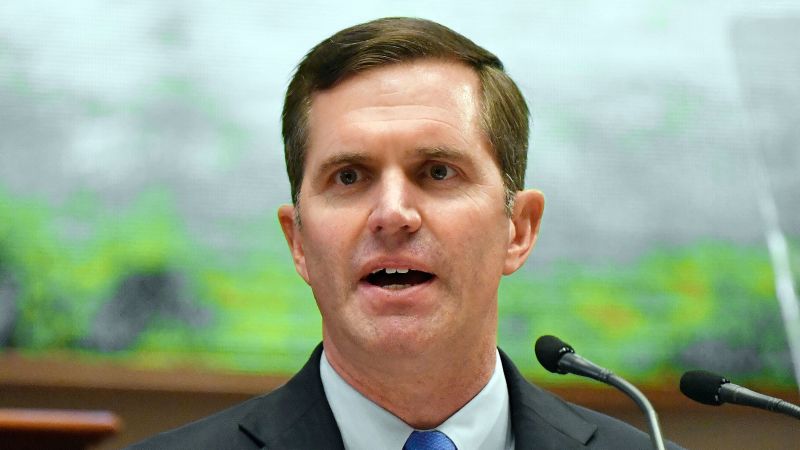

Washington
CNN
—
A Kentucky law that aims to increase oversight in public schools by making it easier for parents to file complaints about – and, if desired, shield their children from – “harmful” materials has gone into effect after Democratic Gov. Andy Beshear declined to veto a Republican-pushed bill.
Senate Bill 5 makes Kentucky the latest state to join a push by Republicans nationwide to champion so-called parental rights in the classroom.
“Harmful” material, as defined in the bill, may “contain the exposure, in an obscene manner, of the unclothed or apparently unclothed human male or female genitals, pubic area, or buttocks or the female breast, or visual depictions of sexual acts or simulations of sexual acts, or explicit written descriptions of sexual acts.”
The new law will establish a process for parents to lodge complaints. School principals will determine if the material in question is indeed inappropriate (the determinations can be appealed), and a parent may request that their child is blocked from seeing it.
By not vetoing the bill, Beshear is allowing the law to go into effect. Michael Adams, Kentucky’s secretary of state, confirmed Monday that his office had received the bill.
In a statement, Beshear’s office said the bill “is about creating a process that most school districts already have” and did not elaborate.
The Kentucky chapter of the American Civil Liberties Union, however, had called for Beshear to veto the bill.
“Senate Bill 5 is part of a long history of attempted government censorship, and overrides systems already in place to review and analyze materials to determine if they are appropriate for students,” Kate Miller, the advocacy director for the ACLU of Kentucky, said. “This bill is blatant government overreach and adds additional layers of bureaucracy on already overburdened school employees, and during a massive teacher shortage.”
Parental rights in education emerged as a significant political issue for the GOP during the Covid-19 pandemic, when school closures, along with mask and vaccine mandates, upended family routines and renewed scrutiny over school leadership. Republicans across the country, arguing that certain discussions around race, gender identity and sexuality are inappropriate for young children, have used the banner of “parental rights” to push for a curtailment of such conversations in schools, even though opinions on the matter vary widely among parents.
Critics have broadly argued Republicans have used the issue to turn the classroom into a battleground and advance a political agenda. LGBTQ rights advocates, in particular, have argued it is a conscious effort to stigmatize a vulnerable slice of American society and could have a chilling effect on what they believe to be urgently needed discussions.
In some states, such as Texas, Florida and Iowa, parental permission is now needed to discuss certain topics with students. Other states, such as Georgia, have put parents and school communities in charge of vetting books their children could encounter at school for signs of race-related or sexual themes, appealing to conservatives who have voiced concerns about “radical” literature.
Last week, the GOP-led House of Representatives passed a bill requiring schools to provide parents with a list of books and reading materials available in the school library and post curriculum publicly, though the legislation is likely to fail in the Democratic-led Senate.
